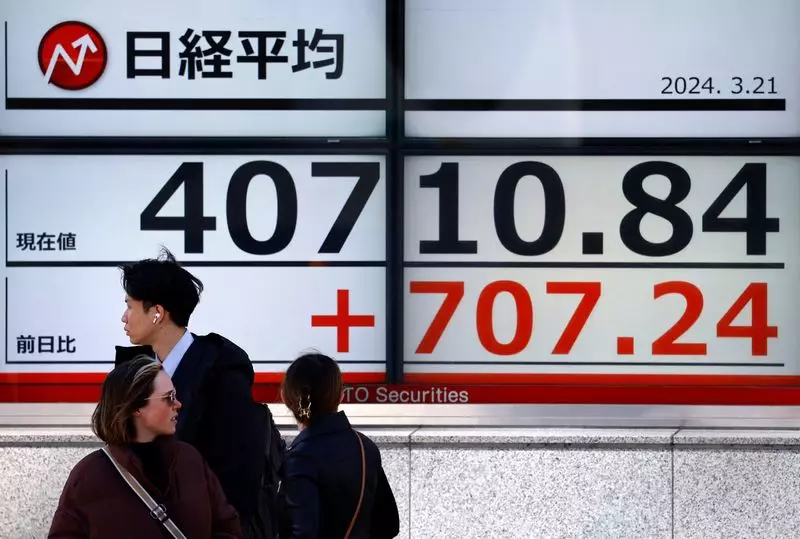The recent retaliatory attack by Iran on Israel has led to a significant slump in Asian shares and a rise in gold prices. The escalating tensions between both countries have raised fears of a wider regional conflict, leaving traders on edge. The possibility of open warfare involving the United States has further heightened the level of uncertainty in the region.
Following Iran’s attack on Israel, Asian markets have started the week cautiously. The MSCI’s broadest index of Asia-Pacific shares outside Japan fell by 0.7%, reflecting the risk aversion among investors. Japan’s Nikkei, Australia’s S&P/ASX 200 index, and Hong Kong’s Hang Seng Index all saw declines as well. The escalating tensions have triggered a flight to safety, driving up gold prices and strengthening the US dollar.
Interestingly, oil prices did not see significant fluctuations in response to the news of Iran’s retaliatory attack. Traders had previously factored in the possibility of such an event disrupting supply chains. While Brent crude futures had reached their highest level since October, they only experienced a slight decrease after the incident. The focus remains on how the situation might impact energy markets in the future.
Neil Shearing, the group chief economist at Capital Economics, highlights the key risks facing the global economy as the potential escalation of a broader regional conflict. He emphasizes the importance of monitoring energy markets in response to heightened tensions. The rise in oil prices could complicate efforts to manage inflation in advanced economies and may influence central bank decisions.
The recent uptick in US Treasury yields reflects traders’ revised expectations regarding the Federal Reserve’s rate-cutting cycle. A series of strong economic data releases, particularly the hotter-than-expected inflation report, has suggested that rate cuts may not occur as soon as previously anticipated. The shift in rate expectations has contributed to increased market volatility and a surge in the US dollar.
As the market adjusts to the changing rate outlook, the future path of US interest rates remains uncertain. Fed policymakers are expected to provide further clarity on the timing of potential rate adjustments. This uncertainty has impacted bitcoin’s rally, with the cryptocurrency experiencing a decline after reaching record highs earlier in the year. The fluctuating market conditions have led to a pullback in bitcoin prices.
The retaliatory attack by Iran on Israel has had far-reaching implications on global financial markets. The heightened geopolitical tensions in the Middle East have sparked risk aversion among investors, leading to shifts in asset prices and market expectations. The coming weeks will be crucial in determining how the situation unfolds and its impact on various sectors of the economy.


Leave a Reply